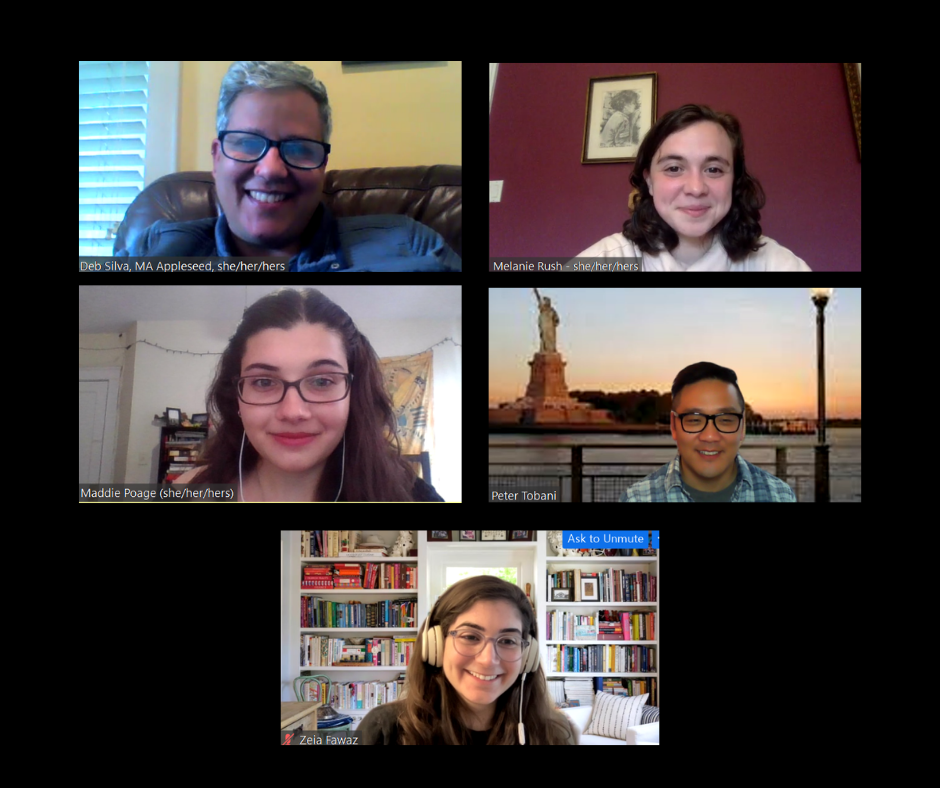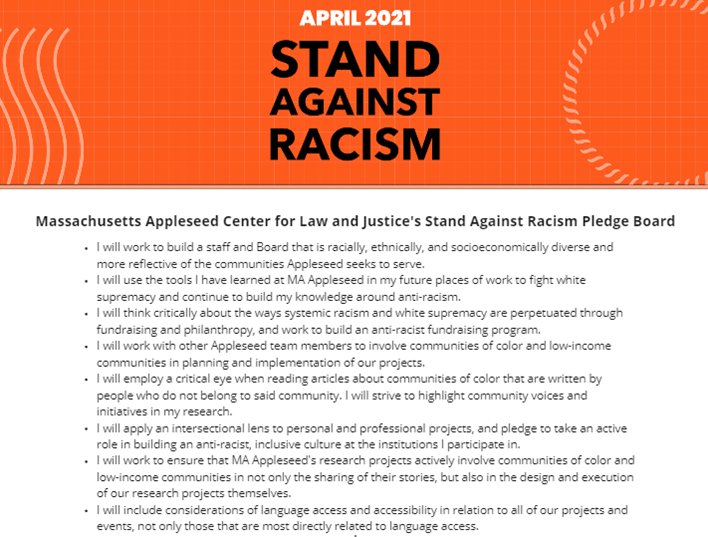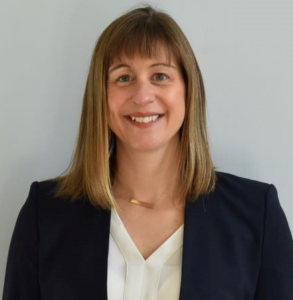Even before the COVID-19 pandemic, self-represented litigants faced an uphill battle in the civil justice system. For a person unable to afford an attorney and forced to walk into court alone, something as small as knowing how or where to file a form could be a confusing, anxiety-inducing process.
Then COVID-19 hit. Thousands lost jobs, fell sick, and struggled to stay afloat. The skyrocketing legal needs of Bay Staters overwhelmed existing services. Courthouses shuttered, shifting to conduct court hearings virtually over the phone and through Zoom.
At the beginning of the pandemic, MA Appleseed began exploring the impact these virtual hearings had on self-represented litigants. We chose to focus on small claims debt collection cases where self-representation is the norm and the consequences of a poor outcome can be severe. People can lose vital income, get saddled with a reduced credit score that haunts them for years, and even face threats of eviction or incarceration.
Law students from Western New England University gave up their school breaks, volunteering to spend hours observing virtual small claims sessions across the state. The students followed up by interviewing the litigants they observed, gaining more insight into their firsthand experience. With project partners, we examined the patterns and recurring problems that emerged from these observations.
This research project culminated in our most recent collaborative report, You’re Still Muted: Access to Justice Barriers in Massachusetts’ Virtual Small Claims Court. Our findings are all-too familiar. At every turn, those who are already the most vulnerable when interacting with the court – low-income litigants, individuals with disabilities, limited English proficient litigants – face barrier after barrier in their attempts to engage with the legal process and achieve a fair outcome. In addition to technology-related hurdles, like litigants dropping out of hearings unexpectedly, a lack of standardization across court practices increases accessibility problems. Deeply entrenched inequities embedded in financial and legal institutions and the compounding effects of the COVID-19 pandemic mean this disproportionately harms communities of color, further widening the racial wealth gap.
Lack of a law degree and the inability to afford to hire an attorney should never be the reason a person loses their livelihood, their home, or is driven deeper into poverty. And as a state with vast racial wealth inequality, taking steps to eliminate these barriers is critical.
Some of the changes we recommended are simple, such as requiring clerk magistrates to introduce themselves and explain their role at the start of every court session. Others may require more coordination, like working with local legal service providers to establish “lawyer for the day” programs where there aren’t any now. Several recommendations seek to remedy issues of basic fairness. For example, standardizing how we treat litigants who appear late to a remote session or fail to show up at all, whether they’re a well-financed debt collection company or a single mother without an attorney.
Solving this problem is possible and the potential benefits are enormous. A study from the Massachusetts Taxpayers Foundation found that closing the racial wealth gap would grow the state’s economy by $25 billion in just five years. When people successfully navigate the civil justice system and resolve their legal problems, they can break out of cycles of upheaval and help build stronger, thriving communities. As for the courts, improved accessibility during virtual hearings will increase court efficiency and improve public perception of the courts as a fair institution.
Court systems across the country have a reputation for being slow to change. They are built on tradition and precedence. But the COVID-19 pandemic forced everyone to rapidly adapt in the face of emerging crisis. The Massachusetts Trial Court rose to that challenge and showed that it can be done – that change is possible. At the height of the pandemic, we saw how court staff and Court Service Center managers worked with creativity and dedication to meet the needs of the thousands of people who sought their help. Amid statewide aspirations for an equitable pandemic recovery and the reality that disparities burdening low-wage workers and communities of color have intensified, these efforts to transform the courts and meet the goal of “justice for all” must continue.
Virtual court, in one form or another, is here to stay. The rapid transformation that the civil justice system went through has provided Massachusetts with a treasure trove of data, information, and powerful lessons about the role technology can play in our future, both good and bad. And unless the needs and experiences of our most vulnerable litigants are centered in that future, a fair outcome in court and all the collateral benefits that come with it – stability, prosperity, and opportunity – will remain accessible only to those able to afford it.
Want to stay informed on the latest issues Massachusetts Appleseed is working on?
Sign up for our mailing list.



 When Kathy McGrath, the pro bono manager for Liberty Mutual’s legal department, heard about
When Kathy McGrath, the pro bono manager for Liberty Mutual’s legal department, heard about 
